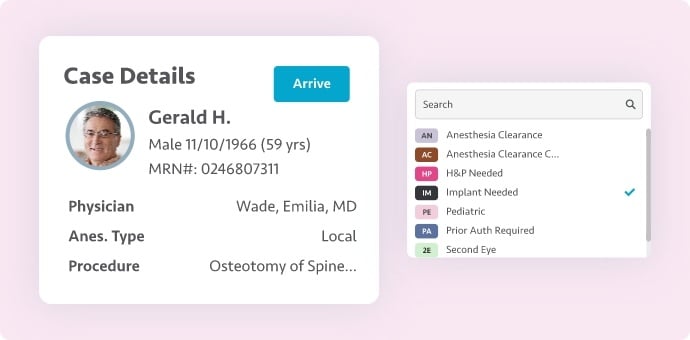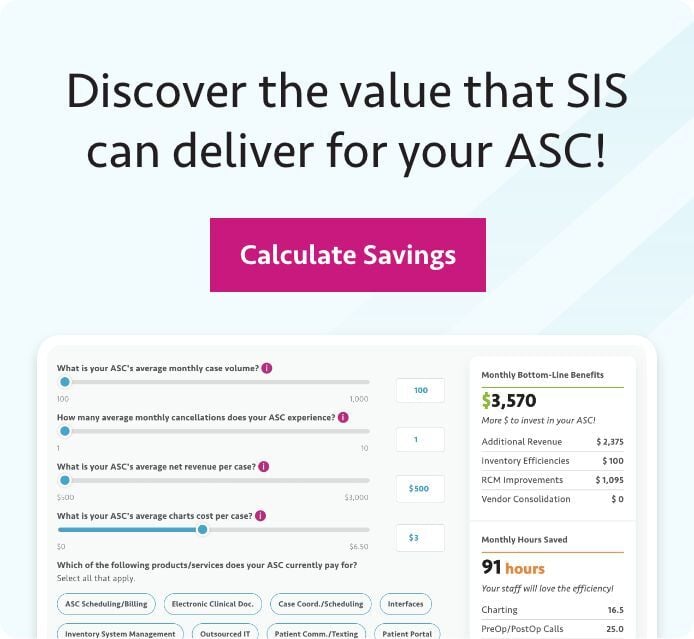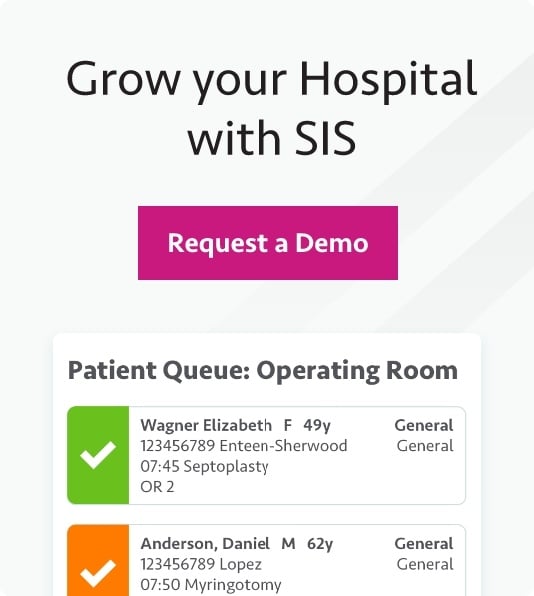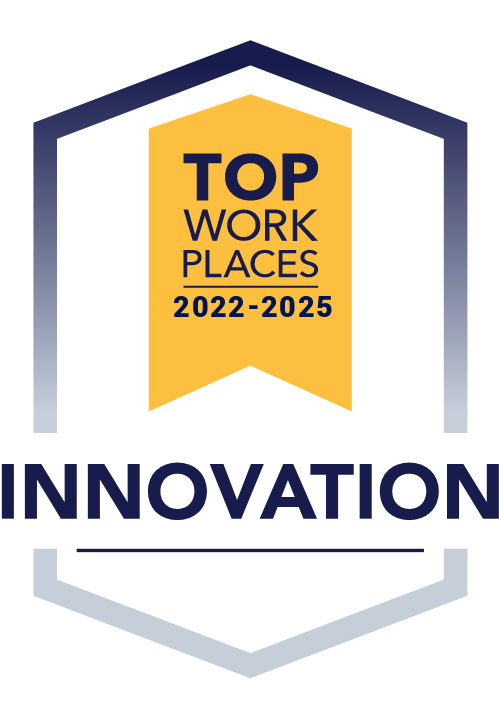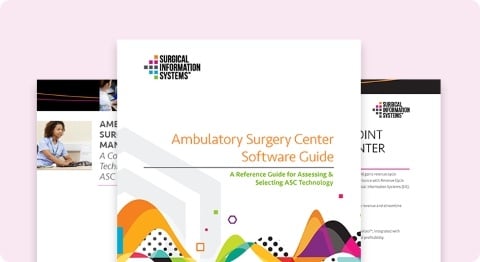Ambulatory surgery centers need to take advantage of the many benefits provided by cloud computing
"Cloud computing" has become an essential part of our digital lives. Cloud computing is technology that enables you to store and access data and software over the internet rather than on a hard drive, a server, or another physical storage device. Most people use the cloud every day but may not realize it. Common digital services that rely upon cloud technology include email (e.g., Gmail), social media platforms, video and music streaming, and file storage (e.g., Google Drive, Apple iCloud).
The healthcare industry has also become increasingly reliant upon the cloud, and it’s proving beneficial for organizations including ambulatory surgery centers (ASCs).
6 Reasons Surgery Centers Should Use Cloud Computing
There are many reasons ambulatory surgery centers should be turning to cloud-based technology, like SIS Complete, rather than continuing to rely upon on-premise software (i.e., software installed on an ASC's own servers). Some key reasons include the following:
- Scalability. Cloud-based software runs on web servers that an ASC does not need to acquire or maintain. The servers are the responsibility of the vendor, like Surgical Information Systems (SIS). The vendor can more easily scale services and server usage to meet client demand, such as adding and or reducing user licenses. This flexibility also translates to an increased ability for an ASC to expand without expensive upgrades or in-house server replacements.
- Reliability. Through the use of automated backup, server management, and storage procedures, cloud-based technology helps protect patient data and better ensures business continuity during an unforeseen event like a damaged hard drive or natural disaster.
- Security/cybersecurity. A cloud provider like SIS that has invested in advanced capabilities, including sophisticated encryption and threat detection technology to help improve data security and regulatory compliance. Cloud vendors are focused on data security and providers like SIS have invested in the resources and processes that reduce the likelihood of a cybersecurity incident and enable a more effective response to cyberattacks.
- Affordability. Services provided via cloud-based technology are typically based on a subscription model with a predictable, fixed monthly cost and eliminates the expenses associated with an ASC acquiring, installing, and maintaining server hardware. Cloud software is automatically updated by the vendor, further reducing the expense and maintenance burden on customers.
- Access. With appropriate permissions enabled, cloud-based technology is accessible anytime and anywhere via a web browser. This empowers ASC staff and physicians to work from their facility and remotely.
- Ease of interoperability. Cloud-based software enables the usage of technology like application programming interfaces (APIs). These interfaces allow two applications to "talk" to each other in a secure manner. When using cloud-based software, these connections are implemented and managed by the cloud vendor. If using on-premise software, accessing interoperability capabilities will likely require additional technology investments, licenses, and management.
Addition Benefits of Cloud Computing for ASCs
As the ambulatory surgery center industry continues its shift to a digitally focused future, surgery centers are increasingly adopting cloud-based solutions for their facilities and partnering with technology vendors operating in the cloud.
Here are some additional benefits that typically come from working with cloud-based partners.
- Better operational monitoring. If you experience a technical issue with on-premise technology, you would likely call the vendor to notify them of the problem, then work with them to resolve it. When you're "on the cloud," vendor partners like SIS can monitor the system more closely, are often alerted to problems before you pick up the phone, and can proactively work to resolve any issues before you ever notice.
- Faster deployments, with less downtime. With cloud offerings, software is delivered over the web using the web browser already found on every desktop, tablet, and smartphone. The cloud vendor manages updates remotely so you always have the latest features and fixes. This enables ASCs to focus more on their business and patients.
- Faster development cycles. In the cloud, pushing updates is simpler. There is a single solution to update rather than a need to push updates out to many versions of the software that are spread across many customers. The ease of updates means cloud software providers can have shorter release cycles, turning client ideas and requests into working solutions much more rapidly.
- Stronger partner community. Cloud vendors like SIS should work with a robust ecosystem of partners to deliver a value-added solution for ASCs. The cloud enables SIS to do that through modern integration methods and configuration with partners’ solutions.
Cloud ASC Software: The Future of Surgery Center Technology
Healthcare is increasingly data-driven, collaborative, and patient-centered. The cloud is proving to be an effective tool for ambulatory surgery centers to address these changes while also reducing overall costs, increasing efficiencies, and taking advantage of the growth opportunities associated with the migration of surgical care to the ASC setting. Partnering with technology providers that operate in the cloud are helping ASCs realize these benefits and give them more time and resources to focus on what matters most: their patients.




